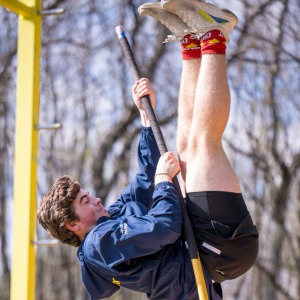Viewpoint: Robert Beck -- Drama unfolds in Russia

Robert Beck COURTESY PHOTO
| Published: 06-27-2023 9:18 AM |
While the recent events in Russia did not herald, as proclaimed by some analysts, the beginning of a bloody civil war, they did highlight the growing rot in the timber of Vladimir Putin’s leadership.
By depending so heavily for military success in Ukraine on an independent band of mercenaries led by a mercurial, power-hungry, ex-convict, the Russian president almost invited the aborted rebellion by Yevgeny Prigozhin and his Wagner group that broke out late last week in regions of southwest Russia bordering Ukraine.
Video of Prigozhin and his troops occupying the critical Russian military headquarters compound in Rostov-on-Don, as well as reports of Wagner units speeding north towards Moscow on the M-4 motorway had the usually unflappable Putin warning of a 1917 type revolt, and Moscow’s mayor preparing for an imminent occupation.
Just as quickly as it had begun, however, the attack melted away as Prigozhin recalled his forces in order to avoid unnecessary bloodshed. What is not clear at this point is what was in the fine print of the settlement negotiated by Belorusian President Alexander Lukashenko between the Wagner chief and his nemesis in the Kremlin.
According to Dmitri Peskov, the Russian president’s spokesman, charges will be dropped against Prigozhin as he goes into exile in neighboring Belarus. Meanwhile, his troops that did not participate in the uprising will purportedly sign contacts to join the regular Russian army. It seems likely that other consequences of the agreement have yet to become manifest.
It will be particularly telling if either or both of Prigozhin’s main enemies in the military leadership in Moscow -- Defense Minister Sergei Shoigu and Chief of the Russian General Staff Valery Gerasimov -- hold onto their jobs. If one or both are shown the door -- for example,“retired due to medical reasons” -- it will mean that Putin was forced to sacrifice more than has been reported to maintain his weakening grip on power.
Going forward, there are several salient questions to follow stemming from the dramatic events of the short-lived rebellion. Firstly, how will the short-lived revolt affect the Russian army’s combat effectiveness in Ukraine? One should logically intuit that the uprising will, at least in the short term, degrade already-low troop morale.
One of the most-amazing aspects of the Wagner march into Rostov-on-Don, a city of over 1 million inhabitants and a major military center, was the complete lack of resistance to the mercenary troops. Furthermore, it is common knowledge that Prigozhin’s forces were the most-hardened, battle-tested Russian troops in Ukraine. Losing the support of many of them as fallout from the affair doesn’t bode well for the Red Army’s prospects on the front lines.
Article continues after...
Yesterday's Most Read Articles
 Spellers strut their stuff at inaugural Greenfield Spelling Bee
Spellers strut their stuff at inaugural Greenfield Spelling Bee
 Meet the candidates in this year’s Peterborough town election
Meet the candidates in this year’s Peterborough town election
 Mary Lawler remembered for a life of service
Mary Lawler remembered for a life of service
 ConVal track and field makes its one home meet count
ConVal track and field makes its one home meet count
 PHOTOS: The Farm at Wolf Pine Hollow holds TulipFête 2024
PHOTOS: The Farm at Wolf Pine Hollow holds TulipFête 2024
At the risk of stating the obvious, look for Ukraine to intensify its counteroffensive in the coming days and weeks, hoping to take advantage of Russia’s internal fissures. Secondly, Prigozhin’s pseudo-putsch took a large chunk out of the facade of Putin’s aura of invincibility. How much these events will weaken his rule will become evident in due time, but he has been weakened.
The critical question related to Putin’s diminished power is “How will he react?” Will he double down in Ukraine or try to cut his losses, negotiate a ceasefire and regroup to fight another day? Future losses on the battlefields of Ukraine may dictate answers to those questions.
Lastly, it is prudent to consider how the upheaval in Russia will influence continued support by the country’s purported allies. Will China maintain its close support of the Putin regime? What about other major powers -- Brazil, South Africa, Saudi Arabia and other countries in the Global South -- that have so far refused to condemn the Russian war effort? Do they stay the course with Moscow or start to hedge their geopolitical bets?
As is the case often in international relations, the full effects of momentous events in far away locales take time to play out, so stay tuned for additional Russian drama. Meanwhile, despite the made-for-the-movies spectacle across the border in southwest Russia, the war in Ukraine grinds on inexorably, with no end in sight as we approach 18 months of battle on the killing fields of Eastern Europe.
Robert Beck of Peterborough served for 30 years overseas with the United States government in embassies in Europe, the Middle East and Asia. He now teaches foreign policy classes at Keene State College’s Cheshire Academy for Lifelong Learning.


